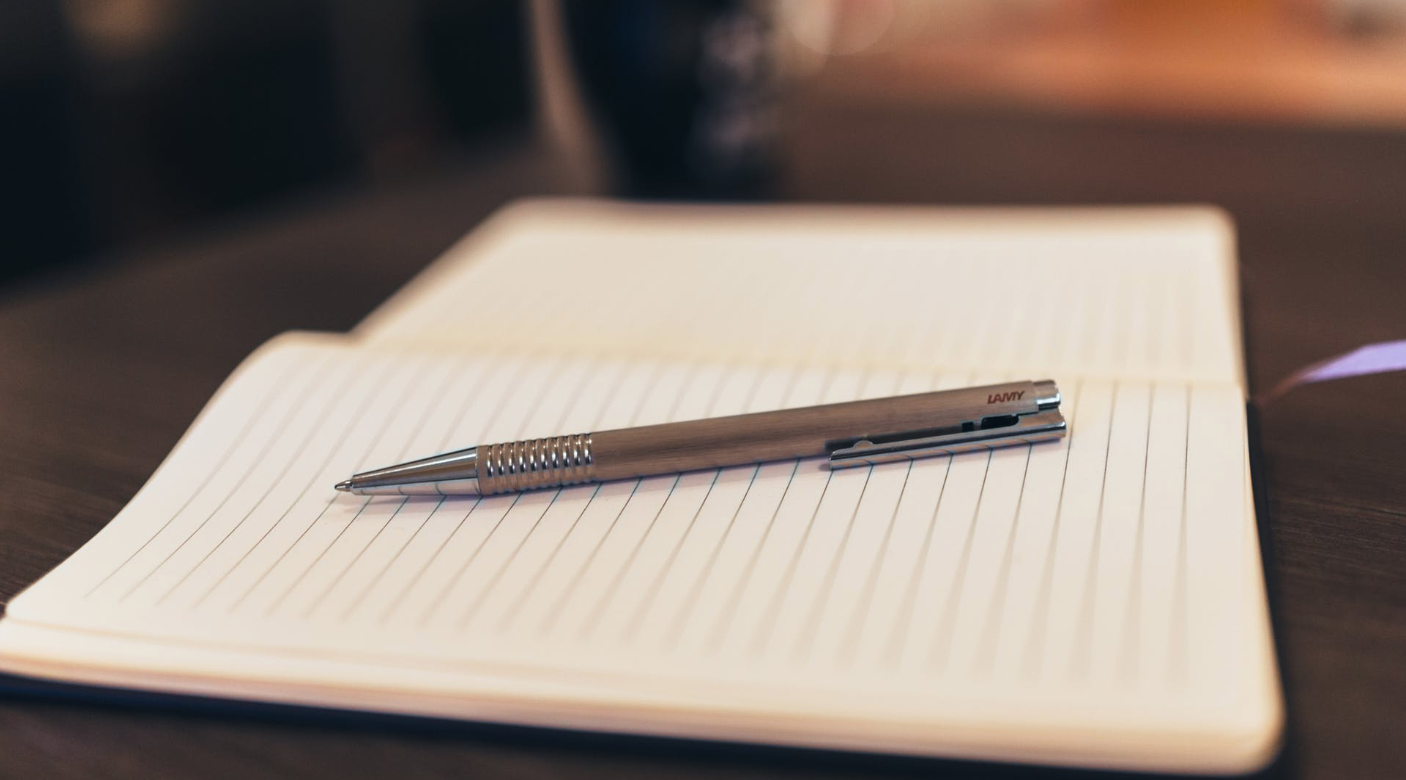SLACKING OFF MAKES YOU MORE CREATIVE. HERE’S WHY
By: Patricia Thompson: Confluence Daily is your daily news source for women in the know.
Have you ever set aside a block in your calendar to be creative—whether to pitch that TED talk you’ve been meaning to do, or start the recipe blog you bought the domain name for last fall?
If so, how did it work out?
I have found that attempting to plan the rhythm of my creativity always shoots me in the foot. The mornings I have deliberately “reserved” as time for to come up with great ideas inevitably become windows for busy work like writing emails or sending invoices.
To be sure, it’s certainly not impossible to schedule creativity (after all, research studies on creativity often require their participants to be creative on demand). But for most of us, it’s easier for the brain to motivate to do laundry when G-cal pings, “LAUNDRY NIGHT” than it is to brainstorm book ideas on command.
Now let me ask you this: have you ever come up with a fantastic idea when you weren’t trying to do so?
Well, moments of inspiration have often come to me when I’m making coffee, taking a shower, or while driving in silence. My mind is seemingly focused on some random topic like reminding myself to go to the bank or pondering what I’ll eat for dinner. Then, all of a sudden, the important insight I had been waiting to come up with for weeks arrives.
Although many of us may have experienced this phenomenon, we tend not to see it as evidence that sometimes our creative brains just need a break.
In my work as a leadership consultant and coach to executives, I repeatedly come across individuals (and groups) who are impatient with the process of problem-solving. In their states of tunnel-vision and desire for quick results, they actually undermine their ability to reach the best possible solutions. The forgotten byproduct of hyper-focus is the fact that, when we are setting our sights on a singular thing, we can’t see anything outside of our frame of vision.
The good news is that there are ways we can proactively help our brains be creative by giving them a little siesta from time to time. These three modes of “slacking off” can counterintuitively help you cultivate more creativity—on and off the job.
1. PROCRASTINATE. YES, YOU READ THAT RIGHT.
Thomas Jefferson famously said, “Never put off for tomorrow what you can do today.” And undoubtedly, his is an inarguable strategy to be successful in those times you just need to check items off of your “to do list.” However, the “get it all done ASAP” attitude is likely less effective for the creative process. Creativity needs the natural rhythm of starts and stops in order to reach full fruition.
In his book Originals, Wharton professor Adam Grant reviewed research suggesting that the more ideas you generate, the more creative they are likely to be as you continue to amass more and more.
A related takeaway is that if you come to a conclusion too quickly, you cut off the process of mass-idea-generation before you might have a chance to get to the really innovative ideas. To guard against this, Grant recommends “strategic procrastination.” Specifically, he suggests purposefully stopping while in the midst of generating ideas or brainstorming in order to get perspective. This gives ideas a “chance to incubate.”
Of course, this method only works if you are motivated to solve the problem; if you aren’t interested and are just putting it off until later, then it actually puts you behind. It may sound counterintuitive, but the value of engineering a greater perspective for yourself will serve the quality of your ideas in the long-run.
2. DON’T STOP YOUR MIND FROM WANDERING (AND YOU MAY EVEN WANT TO PLAN SOME DAYDREAMING).
A close cousin to procrastination is daydreaming. In their article “The Costs and Benefits of Mind-Wandering” Benjamin Mooneyham and Jonathan Schooler review research suggesting that mind-wandering can be helpful for creative problem solving, even though it’s been shown to harm performance in a variety of areas (e.g. tasks required sustained attention, comprehension).
In a study out of UC Santa Barbara, researchers required four groups of subjects to complete a task in which they were given two minutes to come up with as many uses as they could for everyday objects. Then, three of the groups were given a 12-minute break. During that time, one group rested, another engaged in a demanding task, and a third group engaged in a mundane task that encouraged mind-wandering. The fourth group was not given a break at all. The researchers found that the subjects who had been in the mind-wandering group performed 41% better on the ones they had done before the second time around. There was no change in the other three groups.
It may seem artificial to try and engineer time specifically for daydreaming during your workday, but there are ways to do it. Plan time to go for a walk, to buy your lunch a little bit farther than usual, to stretch for 10 minutes as a break. The key factor is that you’re not hyper-focused or doing anything mentally-taxing. When you return to the given task, you might just find that your creative juices are flowing.
3. RECALL THE WISDOM OF YOUR PARENTS, AND SLEEP ON IT.
Do you ever wake up for work after not getting enough sleep and feel like you literally can’t function? Well, you’re partially right: sleep-deprivation significantly debilitates both our mental and physical functioning.
By contrast, do you ever feel like after a good night’s sleep, you have perspective on something you experienced the day before that you wouldn’t have had otherwise? That question may summon the age old adage your parents probably gave you when dealing with a tough situation: “sleep on it.” Well, they were right: sleep is not only necessary for brain and body function, but it may also facilitate insight.
In a small study, a group of individuals who went 32 hours without sleep were compared to a control group who slept normally. The researchers found that the sleep-deprived group showed less creative flexibility and originality when compared to controls.
In another study, subjects were given a task that was designed so that researchers were able to determine training period in which they were presented with number sequences that they had to transform by changing one digit at a time based on two rules. However, if they had an insight while completing the task, they would discover a “hidden” rule that would enable them to solve the problem immediately— instead of gradually. Thus, the design of this study allowed the researchers to ascertain the exact moment that each person had a “eureka” moment.
After the initial training, subjects either spent the next eight hours awake or asleep. The researchers found that those who had slept on it were more than twice as likely to have the hidden rule insight than those who had been awake. The researchers concluded that sleep may be a tool for facilitating insight, in addition to a necessary bodily function. So, if you need to come up with a solution to a problem, you might give “sleeping on it” a try.
It’s definitely important to have all of the facts and relevant information at hand when you need to be creative. But when you put too much thought into it, you don’t give your brain a chance to settle, consolidate the information, and put it together in new ways. So give yourself permission to “slack off,” so that you can be more likely to gain insights and inspirations.
Did you know that mindfulness can also improve creativity? Find out more here.
More by Patricia:
 Patricia Thompson, Ph.D., is the President of Silver Lining Psychology, a management consulting firm devoted to helping organizations and the people within them to flourish. She is a corporate psychologist, executive coach, and author whose expertise has been featured on sites like the Harvard Business Review, Fast Company, Entrepreneur, Time, and many others. For more advice on being your best at work, get her Checklist for Success or sign up for her free course on the 6 Keys to Personal Transformation.
Patricia Thompson, Ph.D., is the President of Silver Lining Psychology, a management consulting firm devoted to helping organizations and the people within them to flourish. She is a corporate psychologist, executive coach, and author whose expertise has been featured on sites like the Harvard Business Review, Fast Company, Entrepreneur, Time, and many others. For more advice on being your best at work, get her Checklist for Success or sign up for her free course on the 6 Keys to Personal Transformation.Confluence Daily is the one place where everything comes together. The one-stop for daily news for women.





